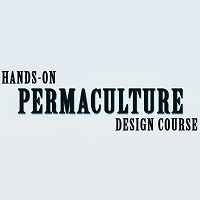Course Fee:
Course fee includes tuition, DVD info pack, field trips, refreshments and vegetarian lunch. Course fee according to income affordability R4500 for low income, students and pensioners;
- R5000 for medium income and Greyton residents.
- R5500 for high income earners.
Accommodation Costs:
Greyton Ecolodge offers accommodation and vegetarian breakfast and supper from evening of 14th to morning of 27th April at:
- R1950 pp camping
- R2600 pp for a dormitory
- R3640 pp for a twin sharing room
- R4420 pp for a single room
Day 1 - Foundations of Permaculture Design
- Introductions: Registration, introductions, expectations, course programme.
- Teaching styles and learning preferences: Visual, auditory and kinesthetic.
- Permaculture Defined: Evolution from Contemporary Agriculture to a Permanent form of Agriculture.
- Permaculture Ethics and Attitudes: Earth care, People care and Fair share.
- Permaculture Attitudes: Work with nature not against, everything gardens, unlimited yield, the problem is the solution, minimum effort for maximum effect.
- Permaculture Design Principles: Energy Efficient Planning: zone planning, elevation planning and sector planning.
- Resource Planning: Multiple function, natural energy and biological resources.
- Design Planning: Relative location, microclimate, maximise edge, succession, diversity and pattern.
Day 2 - Permaculture Design Inspirations
- Permaculture Design Inspirations (own designs): Small scale gardens, a Permaculture learning centre, keyline systems, rainwater harvesting designs, community based organic farming projects, agri-village models, sustainable housing settlements.
- Permaculture design portfolios (designs by others): Aranya's Diploma Portfolio.
- Permaculture Design Processes: SADIM, O’BREDIMET, CEAP.
- Design checklists: Environmental analysis, Permaculture designer’s check list and client questionnaire, site and land selection criteria, site evaluation checklist.
- Permaculture Project Design Process (own process): Site analysis, concept design, detailed design, implementation and operation.
Day 3 - Sustainability Worldview
- Ecological Footprint: Sustainability Overview from Findhorn Ecovillage, Global Footprint Network 2010 Annual Report, Ecological Wealth of Nations, Biodiversity Challenge, Anthropocene, and, Happy Planet Index.
Day 4 - Consciousness Regenerative Agriculture
- Regenerative Agriculture: Keyline Principles, Climate, Geography, Yeoman’s Scale of Permanance, Water, Access, Forestry, Buildings, Fencing, Soils.
Day 5 - Soils and Plants
- Soil Fertility: Soil analysis, soil composition, composting, vermiculture, myco-remediation, soil vitality.
- Plant Health: Seed diversity, companion plants, plant guilds, seedballs. Food vitality, refractrometer, integrated pest management.
Day 6 - Farming Systems
- Farming Systems: Limited Till Systems, Conservation Farming (Zambia), Natural Farming (Fukuoka), Biodynamics.
- Polycultures: Backyard Aquaponics, Polyface Farm (USA).
- Rainwater Harvesting: Urban, drylands, vetiver grass.
Day 7 - Waste Water and Sanitation
- Living Water: Emoto and Schauberger, flow forms, Earth’s Water Budget.
- Waste Water Treatment: Constructed Wetlands, Restoration of Water, Living Machines, bioremediation, waste water design parameters, WET systems.
- Appropriate Sanitation: Compost toilets, The Arborloo, tree bogs, Howard Higgins Theromophyllic EcoSan Waste Management System.
Day 8 - Built Environment
- Natural building technologies: Cob, adobe, strawbale, rammed earth, stone masonry, renderings, hybrid system.
- Permaculture Approach to Built Environment: Sustainable housing layouts, Permaculture town plan layout, large scale suburban project, Permaculture Applied to Natural Building, Green Buildings.
Day 9 - Energy Descent Planning
- Biophysical Energy Economics: Energy Return on Energy Invested, entropy vs ecotropy, Future Scenarios (Holmgren).
- Transition Movement: The Cuba Experience, Transition Influences, Transition Primer, Vision in Transition (Holmgren).
- Project Management Techniques: Foundations of Project Management, Strategic Planning Frameworks, project management process.
Day 10 - Building Sustainable Communities
- Ecovillage Perspectives: Findhorn & Zuvuya, Institutional and Land / Legal arrangements, The Anastasia Phenomena, Fundamentals for Ecovillage Design, Foundations for Sustainable Rural and Peri-Urban Development, Umbumbulu Vegetable Box Scheme.
- New Economics: Leaky bucket economics, social enterprise, complementary currencies, ethical banking.
Day 11 - Integrate Sustainability
- Design for Sustainability: Sustainability Ethics:- Based on Earth care, People care and Fair share.
- Sustainability Attitudes: Curtailment, co-operation, community, resilience, human scale.
- Sustainability Design Principles: Enabling environment, minimize impact, minimize waste, biocapacity restoration.
Day 12 - Closure and Networking
- Learning Pathways: Diploma of Applied Permaculture Design, GAIA Education Design for Sustainability (GEDS / EDE, Permaculture Networks – Permaglobal; Further training – RegenAg, Nutri-tech, Agro-Forestry; Permaculture Research Institute (PRI).
- Project Presentations: Group design projects, and, individual projects.
- Closure: Sharing and improvements; feedback survey; handout of PDC certificates; and, celebrations.

